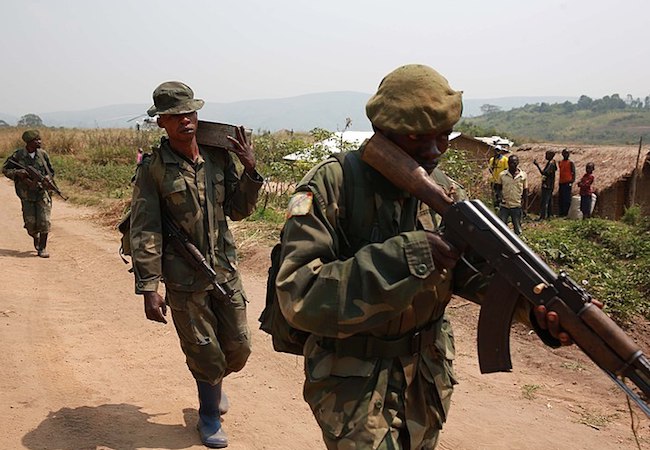
By Rene Wadlow
How effective are U.N. peacekeeping operations in preventing and stopping violence? Are there alternatives to the ways that U.N. and regional organizations currently carry out peacekeeping operations? How effective are peacekeeping operations in addressing the root causes of the conflict?
There have been recent news stories of the difficulties of the U.N. peace operations in the eastern part of the Democratic Republic of Congo. The U.N. Stabilization Mission in the Democratic Republic of Congo (MONUSCO) was founded in 1999 and has been on the ground since. “Failure” is an often used word to describe the operation. News stories often highlight the systematic rape of women in the area and the inability or unwillingness of U.N. troops to stop the rapes which have become a standard practice in the area both on the part of the members of the armed insurgencies as well as by members of the regular Congolese Army. For the past several years, international attention has focused on the Kivi provinces in the eastern area on the frontier with Rwanda and Burundi. Now there is increased violence in the three provinces of the Kasai and more recently inter-ethnic conflicts in the Ituri province. The U.N. estimates that the are some 4.5 million displaced within the country and some 650,000 refugees going to neighboring countries, especially Uganda.[1]
There are also other examples where “failure” is the key word in popular evaluations. In the eyes of many, the lasting image from the peacekeeping efforts in Somalia is the body of a US soldier being dragged through the streets of Mogadishu. Somalia is still a failed state, lacking a central government that controls all of Somali territory. From this perspective, the two U.N. operations there, as well as the US mission, were miserable failures. At the same time, peacekeepers provided food and medical care to hundreds of thousands of internally displaced Somalis and no doubt saved countless lives. From that vantage point, the peace operations were successful.
The first reality is that there are no permanent U.N.-trained and motivated troops. There are only national units loaned by some national governments but paid for by all the U.N. member states. Each government trains its army in its own spirit and values, through there is still an original English ethos as many U.N. troops come from India-Pakistan-Bangladesh-Nepal and Nigeria.
There have been suggestions, some even before the creation of U.N. peacekeeping efforts, that there should be a permanent U.N. force, trained to common standards, and on call for prompt action. As experience has shown that soldiers are not able to carry out fully all the tasks that need to be met, the proposals now often speak of a “U.N. Emergency Peace Service” that would include police, relief workers and judiciary to recreate a court system. Former U.N. Secretary General Kofi Annan who had also been in charge of the Secretariat section overseeing peacekeeping has compared the job of building support and raising funds for each new U.N. peacekeeping mission to that of a volunteer fire chief who is forced to raise funds, find volunteers and secure a fire truck for each new fire.
Moreover, the current U.N. peacekeeping troops are not trained for loyalty to the U.N. and its values. While many U.N. troop members have served bravely, there are also those who in a difficult situation avoid getting shot at. Issues of moral, loyalty, responsibility to follow soldiers and responsibility to civilians have always been considerations in the training of national troops. Most of these issues are passed over with generalities in the U.N. system.
As has often been pointed out, peacekeeping is different from peacebuilding. Peacekeeping has often been the interposition of U.N. troops between two potential armed forces but who are not in the process of fighting, such as on the Israel-Lebanon frontier or the Greek-Turkish divide of Cyprus. Peacebuilding requires the creation of appropriate forms of government – a difficult task in any case as we see in Afghanistan, Iraq and Yemen. The creation off appropriate forms of government and the training of devoted civil servants is not a task for which the military are trained, but there are few other people “on call” for such state-building tasks.
Notes:
1) See Severine Autesserre. The Trouble with the Congo: Violence and the Failure of International Peacebuilding(Cambridge University Press, 2010)




